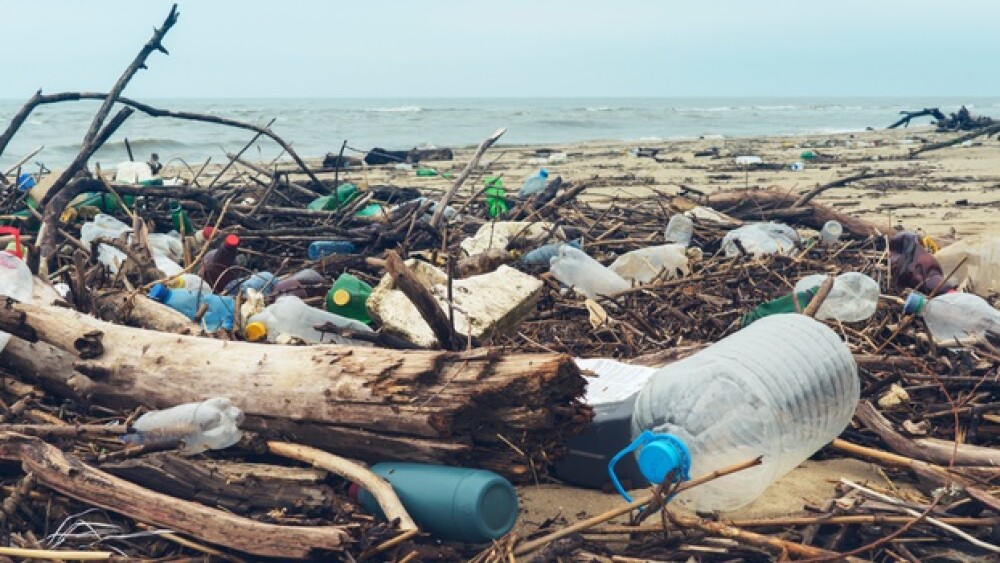Think biotechnology, you probably think cutting-edge development of drugs to treat diseases. Yet in 2007, a U.S. EPA report noted that industrial biotechnology and biobased manufacturing are more efficient, cleaner and make better use of sustainable renewable resources.
Think biotechnology, you probably think cutting-edge development of drugs to treat diseases. Yet in 2007, the U.S. Environmental Protection Agency (EPA) report, “Bioengineering for Pollution Prevention,” noted that industrial biotechnology and biobased manufacturing are more efficient, cleaner and make better use of sustainable renewable resources. And a 2017 report by the Biotechnology Innovation Organization (BIO), noted, “Since 2007, companies have commercialized products that demonstrate industrial biotechnology’s unique ability to reduce pollution, achieving measurable improvements in biomass sustainability, energy efficiency and carbon re-utilization.”
Here’s a look at just a few of the companies working in this area.
Provectus Environmental Products. Located in Chicago, Provectus offers a number of products that are used to clean up environmental hazards. For example, Provect-IR, an antimethanogenic ISCR (in situ chemical reduction) reagent, which is used to treat chlorinated solvents, organochlorine pesticides, and other halogenated compounds. The company says on its website, “notably, Provect-IR is the only ISCR reagent to simultaneously inhibit the production of methane during the requisite carbon fermentation processes. This promotes more efficient use of the hydrogen donor while avoiding negative issues associated with elevated methane (CH4) in groundwater, soil gas, and indoor air.”
Carbios. PET is an acronym for polyethylene terephthalate and is a common resin of the polyester family that is used extensively in clothing fibers, liquid and food containers, and various manufacturing using plastic. Carbios, a French company, has developed a technology that depolymerizes textile waste fibers made of PET plastics using enzymes. According to the company, plastic textile waste is more prevalent than from plastic bottles. The company is also targeting plastic bottles, packaging and film. In short, the company has developed a way to degrade plastics and recycle them more efficiently.
“In the future, we expect to have enzymes for each type of polymer,” said Emmanuel Maille, director of Strategy and Development at Carbios, in a statement to Labiotech. “So, we could have an iterative process to recycle any type of plastic, without the need for sorting, and we can recover the monomers that interest us.”
Aemetis. Based in Cupertino, California, Aemetis is an advanced renewable fuels and biochemical company focused on producing fuels and chemicals. On June 19, Biofuels Digest awarded the company’s cellulosic ethanol facility under development at its Riverbank site in California as the #1 Waste-to-Value Project in the world. Biofuels Digest said the project “combines the best technology from leading technology providers LanzaTech and InEnTec with the local availability of waste orchard wood and other feedstock that can be used to produce Aemetis’ high-value cellulosic ethanol and valuable byproducts.”
“Though the Aemetis Riverbank cellulosic ethanol plant is designed to use any biomass material, the conversion of agricultural waste biomass into high value, below zero carbon biofuel utilizes the unique availability of over 1.6 million tons of annual waste wood feedstock in the Central Valley from almond and walnut orchards,” said Eric McAfee, the company’s chairman and chief executive officer, in a statement. “Aemetus holds exclusive rights in California and important rights worldwide for biomass conversion using the InEnTec gasifier and LanzaTech microbial reactor technologies.”
Boragen. Located in Research Triangle Park in Durham, North Carolina, Boragen was one of BioSpace’s Top Life Science Startups for 2018. It focuses on boron-based development of anti-bacterials and anti-fungicides for the agricultural industry. John Dombrosky, the company’s chief executive officer, told BioSpace late last year, “We’re facing 10 billion people on the planet by 2050, and agriculture is the number one user of water, land and deforestation. There’s a lot of ecological connectivities going on in agriculture, and that’s what a lot of younger people care about, doing good, and it hasn’t really happened before because there really hasn’t been a lot of biotech entrepreneurship in agriculture.”
Carbon Engineering. Headquartered in Squamish, British Columbia, Carbon Engineering was founded in 2009 and is focused on commercializing technology that captures carbon dioxide directly from the atmosphere and synthesizing it into clean, affordable transportation fuels. Carbon dioxide in the atmosphere is one of the key aspects of global warming and climate change.
In June, Harvard University researchers and Carbon Engineering, announced they believe they have the technology to do this inexpensively, and published their results in the journal Joule.
In 2011, experts estimated it would cost at least $600 to remove a metric ton of carbon dioxide from the atmosphere. The Harvard and CE researchers believe it can be done for as little as $94, but no more than $232.
“If these costs are real, it is an important result,” Ken Caldeira, a senior scientist at the Carnegie Institution for Science, told The Atlantic. “This opens up the possibility that we could stabilize the climate for affordable amounts of money without changing the entire energy system or changing everyone’s behavior.”





